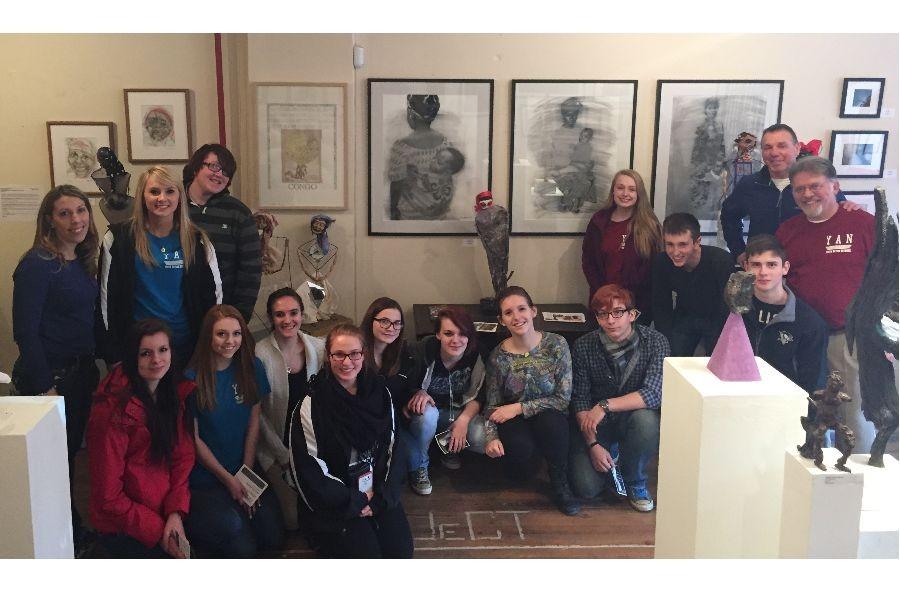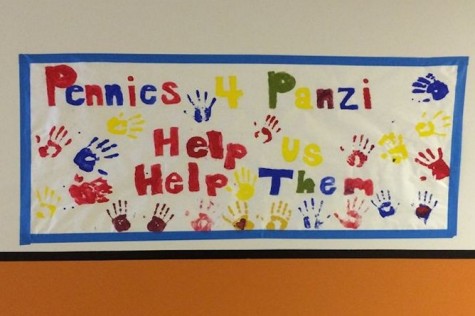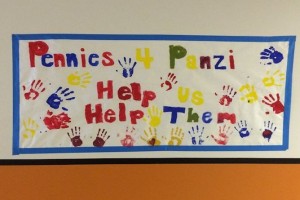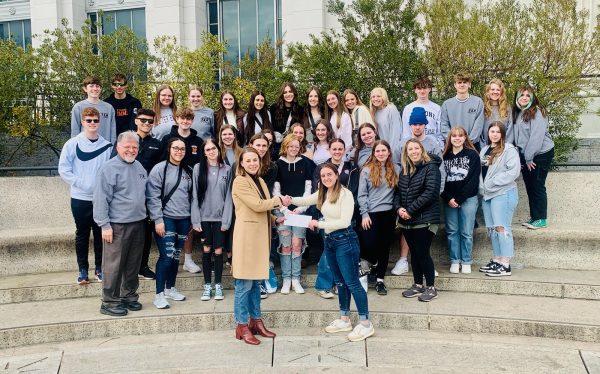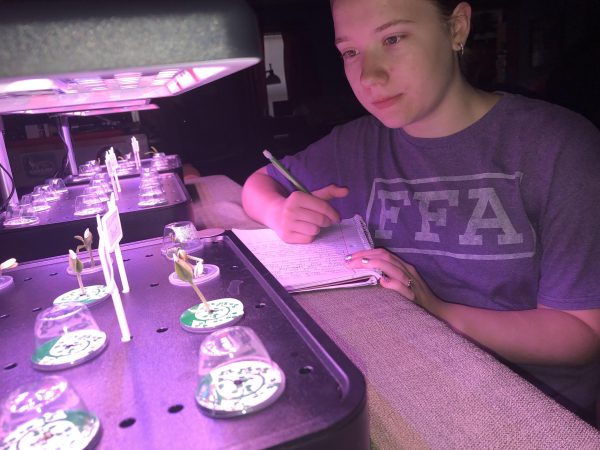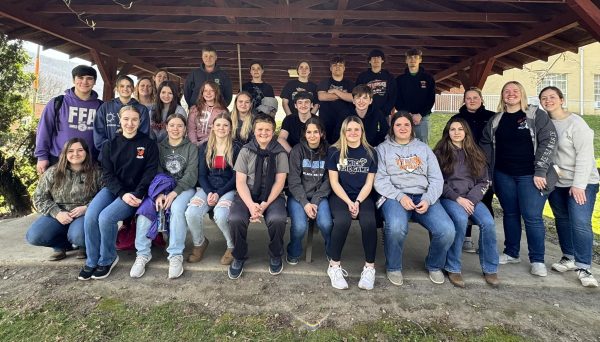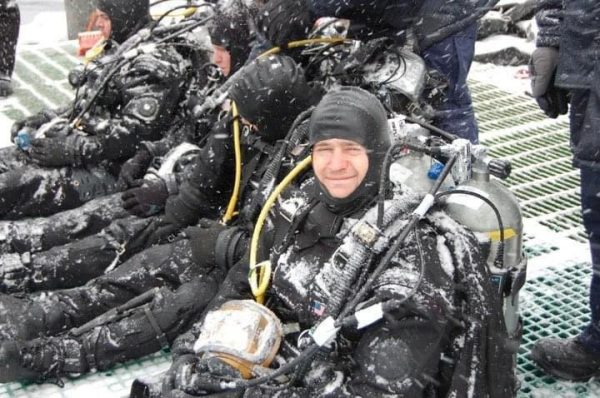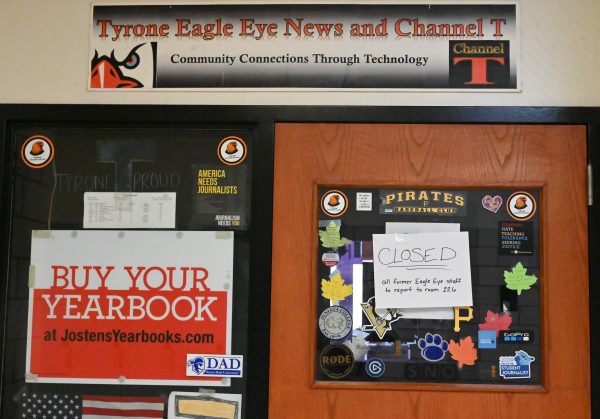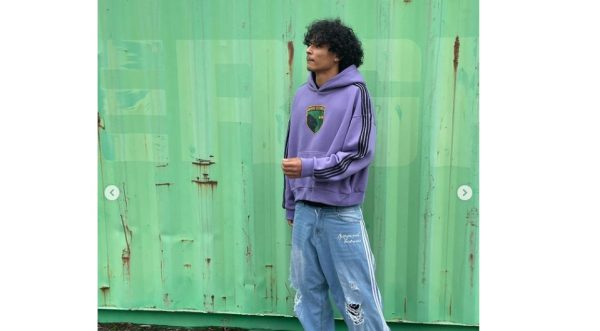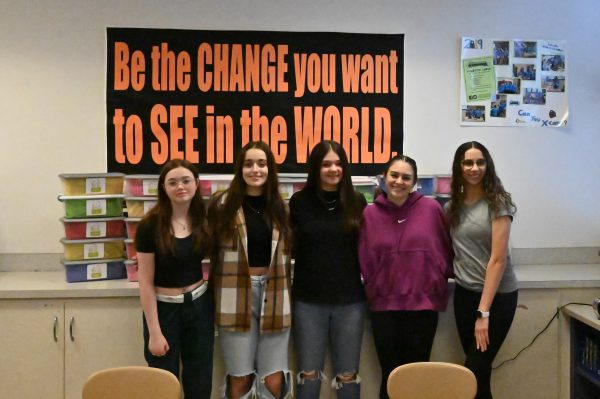Healing Women, Restoring Lives: TAHS Students Learn About Victims of Violence in Congo
A study published in the American Journal of Public Health in 2011 states that 48 women are raped in the Democratic Republic of the Congo (DRC) every hour. Rape is used as the weapon of war in the Congo, where the government, armed militias and rebel groups have been in conflict for years over territory and control of raw materials.
Dr. Denis Mukwege, a world-renowned gynecological surgeon, founded the Panzi Hospital in Bukavu, Democratic Republic of the Congo (DRC) in 1999 to help the victims of this conflict. Tyrone native and artist Peter Frantz has in turn helped Dr. Mukwege by cofounding the Panzi Foundation USA.
On Friday, January 22, Frantz invited a group of thirteen TAHS Youth Action Network (YAN) club members and their advisers to the Locality Art Gallery in Bedford, Pennsylvania to see new works by Frantz and from the Panzi Foundation’s ongoing partnership with a high school in Winnipeg, Canada.
Peter has a powerful message that he shares with the public as he travels around the globe, and that message is one of peace and responsibility.
— YAN Adviser Cummins McNitt
“Peter’s work goes far beyond his art studio and the galleries that exhibit his work,” said YAN advisor and TAHS social studies teacher Cummins McNitt, “As one of the founders of the Panzi Foundation USA, he is an important part of the mission of the Panzi Hospital and the work being done by Dr. Mukwege. Peter has a powerful message that he shares with the public as he travels around the globe, and that message is one of peace and responsibility. To live in peace men need to take the responsibility for their actions and take a stand in our world today to stop the violence perpetuated on women.”
This is the 10th time the exhibit has been shown since 2009, when it first debuted in France.
Some of the art was created by high school students at the RB Russell School in Winnipeg, with help from their art teacher Pancho Puelles. Their sculptures are inspired by rape survivors in the Congo.
“[The students] are expressing things they felt after seeing what happened with Panzi,” said Locality artist Michael Long.
The exhibit explores not only the resiliency of the people of the Congo, but also the similarities that youth from around the world share.
“This is a tough bunch of kids, they are bright though,” said Frantz, “they are members of a displaced community. These are their stories. This is real.”
“It was very interesting,” said Tyrone junior Alex Stehley, “I really enjoyed being able to see what the students made and how they expressed themselves through art. It was very eye opening.”
“There’s no difference between you and them. Not a single solitary difference,” Frantz told the Tyrone students, “They want the same things we want. Are they black? Yes. But does that make them different? Hardly.”
“[The Panzi Hospital] has treated 40-50 thousand women, but that’s just a fraction of women who need help, and that’s what the Panzi Hospital is about,” said Frantz, “there’s a single road from one side of the country to the other, and there’s not a single CAT-scan machine between Rwanda and Kinshasa, except for one at Panzi Hospital. But there are probably 100 CAT-scan machines within a 20 mile radius of where we are now.”
The portraits on display at the gallery are all of survivors of the sexual violence in the Congo.
When you look at the art it brings you into a whole new world and you can see what’s really going on with the situation
— TAHS sophomore Jamie Lynch
“When you look at the art it brings you into a whole new world and you can see what’s really going on with the situation,” said sophomore YAN member Jamie Lynch, “the art isn’t censored so it opens you up to a reality that you wouldn’t get anywhere else, and you can feel the pain that these women do.”
To completely stop the never-ending violence, Frantz explains that advocacy and getting involved plays a huge role. The conflict in Congo is fueled by trading materials like diamonds, coltan, tungsten, and cassiterite. Some of the raw materials end up in consumer electronics such as smartphones.
“Your brothers and sisters, particularly your sisters half way around the world are living in pure hell and part of that we are responsible for because without the need for these materials, some of this wouldn’t be happening. These aren’t women’s problems, these are mens problems. Why should you be involved? Because this is abuse plain and simple, this is the strong ganging up on the weak.”
“Next time you go to your phone store ask them if they have conflict free mineral phones. They’ll know what you are talking about,” said Frantz.
To help the Panzi Foundation, Tyrone’s YAN club holds an annual Pennies for Panzi donation drive. The goal is to raise money to keep hope alive for the children at Aire de Jeux, the hospital’s outdoor daycare center. This event is underway now at Tyrone High.
“All in all, I was delighted with the trip and the powerful messages and lessons we all got from the experience,” said McNitt, “whether they came through Peter’s words in his art, of the art of the many women in the gallery that afternoon.”

My name's Carly Crofcheck. I've been in the Tyrone Eagle Eye for four years and I'm a Senior at TAHS. Last year I was the Editor in Chief, this year...



